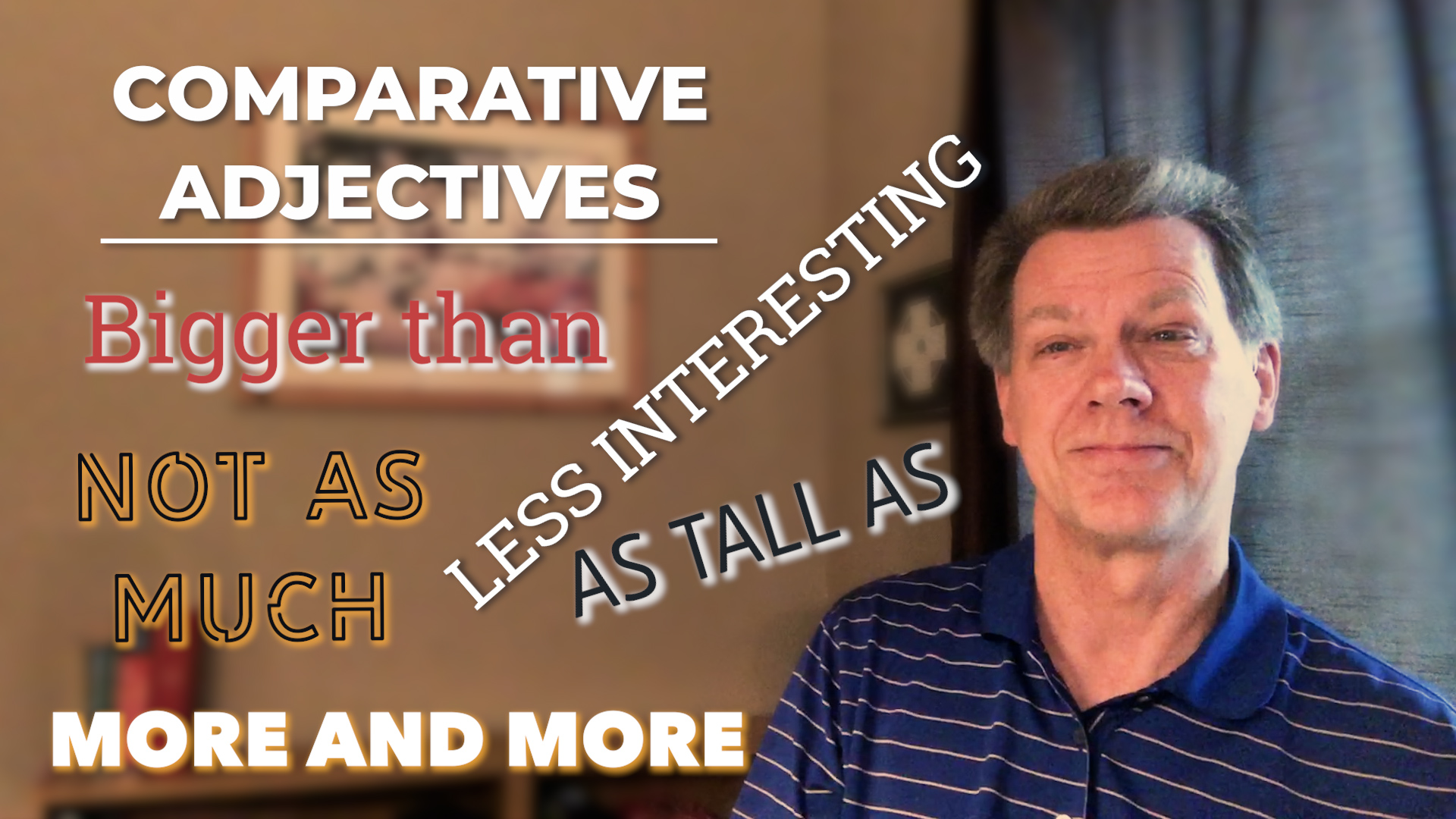The most impressive is collection of share me online college courses

Do you get confused when comparing things in English?
You’re in the right place. We will break down the different ways to compare things in English so you feel confident about when to use -er, more, as ___ as, and “less and less.”
Adjectives are words in the English language that describe or modify nouns (persons, places, or things). They add an extra degree of description to someone, some place or some thing.
Comparative adjectives are used to compare the differences between the two objects they modify (larger/smaller, faster/slower, higher/lower).
So let’s look at some examples.
First, we can use the word “as” with a normal adjective to say two things are the same.
• John is as tall as Luke (they are the same height)
• The red shirt is as expensive as the blue shirt (They are the same price)
We can also use ‘not as’ to say two things are not the same.
• Lucy is not as tall as Helen (Helen is taller than Lucy)
• Paris is not as large as London (London is bigger than Paris)
We can say something is more than another thing by using the comparative adjective ‘than’.
• France is bigger than Scotland
• Luke is taller than Lucy.
• Your book is more interesting than my book.
Notice on the previous examples that some comparative adjectives are created by simply adding the letters ‘er’ to the end of the main or ‘root’ word. (big/bigger, tall/taller), but please know that the rule doesn’t apply to all words consistently. Some words require a modifier like ‘more’ or ‘less’ in order to form the correct sentence structure.
For example, you would not say:
• My book is interester than your book.
You would say:
My book is more interesting than your book.
We can make the comparison stronger or less strong by using ‘far” or ‘much’ or ‘ a lot’ before the adjective. Conversely, we can lessen it by using ‘a little’ or ‘a bit’.
• Canada is far bigger than Scotland.
• Amanda is a lot younger than Julie.
• Your book is much more interesting than my book.
• Scotland is a bit smaller than France.
• Lucy is less tall than Luke
• My book is less interesting than your book.
The last example of comparative adjectives will show how something changes over time. Here we use the repetition of the same comparative to indicate this change.
• That child is getting taller and taller.
• The climate is getting hotter and hotter.
• The city is becoming more and more crowded.
Notice the last example only repeats the modifier word for the comparative adjective.
That’s a look at how to use comparative adjectives to communicate the degree of difference in people, places, and things.
In another lesson, we will discuss the use of superlative adjectives to indicate the highest or lowest degree of comparison.
5 Reviews
o re batpar
o re batpar
o re batpar
o re batpar
o re batpar
o re batpar
Excellent
Hmm
Top most best topic
Strategic Social Media & Marketing Policy



 Türkçe
Türkçe